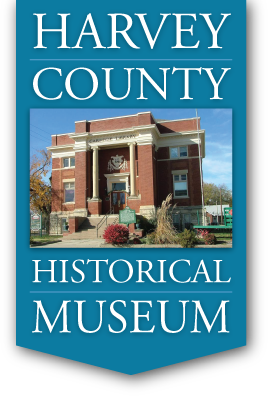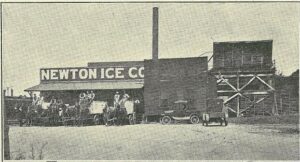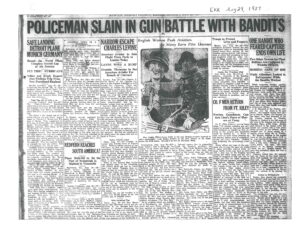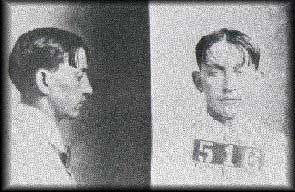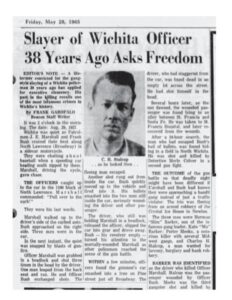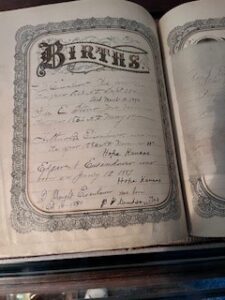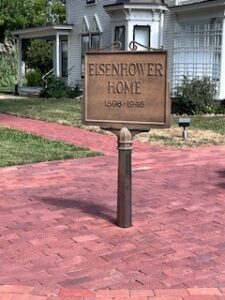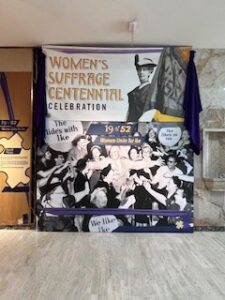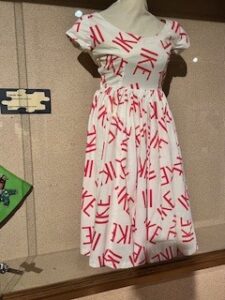Ghost Walk Script 2024
Kristine Schmucker, Archivist Curator
October 2024
Welcome
Welcome to our first Ghost Walk. We will be starting on W 2nd in the area that was once known as Hide Park. From there, we will walk north down Main Street on the west side of the street. All of the stories I or Catherine will be telling are from newspaper articles. Actual documented events that took place at the location we will stop at either in that building or just outside of it. In some of the buildings some have experienced or seen unexplained occurrences. Where we have permission to tell about this we will.
Everything that we tell will be historical fact, researched in newspapers and diaries, etc.
We ask that you wait with questions and observations until after we are done telling the story. Once we are done at each stop, we will allow some time for questions & comments.
We will also point out some interesting things about some of the buildings as we go by.
For example, if everyone would look across the street. The east side of the 200 block of Main has some of the oldest building in Newton that some of the original features from the 1880s, (except for the Furniture Warehouse, the Garage buildings.)
The building straight across is the last building on Main that retains almost all of its original facade from when it was built in 1883-86. The building at 801 Main was the other building with a high degree of integrity, but it was torn down. If you want to know what Newton looked like up and down Main in 1886 – this building can give you a good idea. The yellow building also retains the metal cornice, and the metal siding of the Metcalf Sister Building hides a brick front from the 1890s.
Move to Hide Park
*************************************************************************
Hide Park
If there is any place in Newton where the ghosts roam, it must be in the area formerly known as Hide Park. Hide Park was a lawless place described “as Hell upon earth.” Even hardened cowboys reported that Newton was one of the worst towns with every element of meanness on earth. In 1871, 5 buildings made up Hide Park including 2 large dance halls/saloons The Alamo owned by EdCrum and Perry Tuttle’s Saloon, and 3 brothels.
Annie Glinn
Perhaps young Annie Glinn still walks along the sidewalks after dark. A young prostitute spurned by a lover, she first attempted to get someone to buy her poison and was refused. Annie would not be deterred, and in her despair, found a revolver. Soon a deafening report was heard and a shriek. Dr. Boyd was there almost immediately, but still too late as Annie died minutes after he arrived. She was buried in Boot Hill.
Shriek
**********************************************************J.H. Lee
On August 1, 1871, a 20 year old cowboy was shot “accidentally.” Lee was well liked and many found his accidental death suspect.
Perry Tuttle’s Saloon – General Massacre
And then there was Perry Tuttle’s, the most notorious Hide Park dance hall and saloon and the site of several of Newton’s most famous shootings. We are standing in the area of the saloon. It wasn’t much to look at. A quickly put up wood structure with a dark interior.
The so-called General Massacre took place here on August 20, 1871 in which 8 men were shot and 5 killed.
The tragedy started several days earlier when Mike McCluskie shot and killed Bill Bailey in front of the Red Front Saloon. Both men had been hired as special policemen by the AT&SF for the upcoming bond vote. They apparently knew each other. It isn’t clear where the Red Front Saloon was located.
Early in the morning, Sunday, August 20, Hugh Anderson, a Texas cowboy walked into Tuttle’s saloon and fatally shot Mike McCluskie. Then an unknown person, a friend of McCluskie, sometimes identified as Riley, began shooting. He shot Hugh Anderson, James Wilkerson and Hickey who survived. Jim Martin, Patrick Lee, Billy Garrett, and Kearnes were fatally shot.
This event solidified Newton’s reputation as “the wickedest city in the West.”
*************************************************************************
Carlos King
A few weeks later, another tragedy. Two law officers, Carlos King and Tom Carson, disarmed a Texas cowboy named Thomas Edwards. Following the shooting at Tuttle’s a law was put in place that stated no guns were allowed in Newton. After King and Carson had removed Edwards’ gun, Carson left to check on another problem. King remained at a Hide Park establishment. Two hours later, Edwards returned to Hide Park, approached King with a pistol, pushed the weapon against King’s chest, and fired.
Carlos King was the first law officer killed in what would become Harvey County, died outside of a Hide Park establishment. .
In 1872, King’s body was moved from the ‘Boot Hill’ cemetery to Greenwood Cemetery. He was one of the first to be buried there.
Because the shooting occurred before the official organization of Harvey County and Newton was part of Sedgwick County, King is also the first law enforcement officer killed in the line of duty for Sedgwick County. His name is listed at the Law Enforcement Memorial in front of the City Building at Central and Main in Wichita, Ks as well as the memorial in Newton.
- Sources
- Kansas Daily Commonwealth, 25 August 1871, 27 August 1871, 27 September 1871.
- Muse, Judge RWP, “History of Harvey County 1871-1881.”
- S. Census, Ionia County, Michigan, 1850, 1860, 1870.
- S. Civil War Soldiers Index, 1861-1865.
- Marriage Record of Carlos B. King and Amanda Arnold, Ionia, Michigan.
- Michigan Deaths, 1867-1897.
- Ionia Standard12 February 1915, Obituary for Amanda Arnold Chapman.” Ionia County, MI Archives Obituaries.
*********************************************************************************
300 Block
Point Out – The Santa Fe Land Office was located on the south side of the track on the west side of Main. Constructed in 1871, the stone structure was torn down in 1967. Muse & Spivey were land agents for the Santa Fe and sold land to early residents and businesses.
Over the years, the building was home to many different businesses. In 1962, the vacant building was condemned and torn down.
On the east side are two original 1880s buildings.
******************************************************************************
Cross Tracks
**********************************************************
Stop in Parking lot by China Inn
400 Main – Over the tracks
Lovett’s Saloon – First Saloon (East Side)
Hide Park was not the site of the first saloon. Newton’s first saloon opened at 4th & Main on the east side in May 1871. Harry Lovett ran his saloon for a number of years, he moved to Dodge City for a time and returned to Newton and spent time farming.
At one point in the summer of 1871 Newton had an estimated twenty-seven saloons, a number of them on the north side of the tracks. The O.K. Saloon was located on 5th Street with two additional “houses” located east of the OK. Gold Room Saloon at 515 N, Main and Lovett’s at 4th & Main were just some of the more well known ones.
By 1873, the number of saloons had diminished to six.
Clark Hotel
This is the location of a hotel that was once called “finest hotel in the state.” The Clark hotel was also the site of murder and raids by law enforcement..
The southwest corner of 4th and Main was a ideal location for a lodging, and since the mid-1870s a hotel had been located at this corner. First known as Rasure House, George Clark purchased the two story in 1876. He was quite successful, so he expanded.
Built in 1886, the grand four story structure with a circular tower had a luxurious interior.The Varney Bros from Detroit, were the architects.
**************************************************************************
Joints & Clark Hotel Prohibition 1890s not 1920s
In the 1890s the Newton Kansan frequently reported about “joints.” The city council passed numerous resolutions dealing with offenders – usually a fine. The newspaper editor frequently scolded law enforcement for not enforcing the prohibition laws or enforcing them in a scattered sort of way. Of course several businessmen took advantage of the lax enforcement of the “prohibitory laws” in the late 1890s.
In August 1897, Sheriff Dick Judkins under the direction of County Attorney W.S. Allen raided several known joints and drug stores. He arrested 4 men and confiscated their goods.
At the Clark Hotel and Gallup’s Place, the sheriff met with resistance. The paper reported that
“at the Hotel Clark, the negro cook flatly refused to allow the sheriff to make search or look into the ice box, sitting down on top of it to prevent ingress.” The cook finally allowed the search “at the point of a revolver.” The Newton Kansan redacted the story the next day stating he did not know how the story was started. When he printed the story the day before, he believed it to be true. Sheriff Judkins stressed that all was peaceful.
Several drugstores were also searched including Conrad’s Drugstore, where the sheriff confiscated “the icebox from the bottling works counter, with other paraphernalia.” Five wagon loads of “goods” were hauled to the county jail and stored in the basement for “future disposal” as a result of the raids. Two were sent to jail, George English and Henry Gallup.
The druggists or pharmacists were also a target of the raids. E. Horan and E.E. Conrad. Judkins “went to the drug stores of E.E. Conrad, O.W. Roff, and W.D. Pearson and took away their permits to sell intoxicating liquors . . . which privilege had been abused grossly. . . . he meant to removed it for the good of the community.”
Sheriff Judkins was not finished, the paper reported that he went to Burrton and Halstead to arrest several people there. Most of the drug store owners, like E.E. Conrad and E. Horan, simply paid the fine and continued with business.
The Kansas City Gazette reported the next day that “Newton Has Gone Dry” noting that ‘the joints have been running wide open in Newton for many months and until now there has been no attempt to close them.” The paper further noted that “Horan and Conrad are prominent citizens” and that “County Attorney Allen means to push the enforcement of the law and will close every place in the city.”
- Sources
- Newton Daily Republican; 30 July 1895, 7 August 1897, 26 August 1897, 27 August 1897, 5 October 1897.Evening Kansan Republican; 19 April 1913.
- Kansas City Gazette; 27 August 1897.
Judge Muse story of a secret door.
Even Judge Muse had a story to tell about the Clark Hotel.
“The well-known door under the main staircase through which the thirsty traveler might follow the colored porter, or some well-posted friend, down along a long corridor, around the toilet rooms into a well-appointed bar, and there secure anything in the line of liquid refreshments – this door is still there. . . no doubt hundreds of Kansans . . . can recall many a pilgrimage through the devious windings required to secure the morning eye-opener or the parting night-cap in the old building during the period when the prohibition was gaining a stronghold in Kansas.”
- Source
- Muse, Judge RWP. “The History of Harvey County: 1871-1881” published in the 1882 Harvey County Atlas and separately by the Harvey County Historical Museum & Archives for sale for $10.
****************************************************************
Murder on Main – Clark Hotel – Looking for Justice?
One of the most sensational murder stories in Newton’s history began shortly before 10:00 on Thursday morning, February 14, 1895, Thomas Williams, the head cook for the Clark Hotel, stepped out of P. Byer’s Store at 421 Main after placing an order. He walked south toward the Clark Hotel and had reached Fred Brandt’s place when Patrick Rickman rushed out.
Some eyewitnesses said that Rickman shouted, “Now I’ve got you!” before shooting his No. 44 Colt Navy Revolver at Williams. Williams ran and Rickman fired again hitting Williams in the back. Rickman then chased Williams. The two continued to fight. Rickman threw Williams down the stairway to a basement on the south side of the Clark Hotel. He continued to beat Williams with the gun handle. One observer described Rickman as “insane with rage” and Williams “powerless to help himself.”
Marshall Ainsworth came to the scene and tried to disarm Rickman with little success. Two men, W.C. Conrad and Mart Covert, tried to help. Finally, Covert gave two blows to the head and was able to daze Rickman enough that Ainsworth was able to get the gun away. By the time they were able to separate the two men – six shots had been fired. Williams had a gunshot wound and was severely beaten.
Williams was carried to Dr. O.W. Roff’s office, where he was pronounced dead.
In the Coroner’s Inquisition later that day, it was noted that Rickman shot and killed a man on Main street and “more than hundred men saw the brutal act.”
Thomas Williams, a Black man, was roughly 30 years of age, described as “quiet, industrious, quite a flashy dresser.” He had worked for Van Duyn, manager at the Clark Hotel, for 4-5 years.He may have had a family, but they did not live with him. Patrick Rickman, also a Black man, was well-known in Newton . A builder by trade and he had even served for a time on the police force. His family was among the first homesteaders in Harvey Co in 1871
The reporter for the Newton Daily Republican noted that the cause of the fight “was the same old story. A man came between husband and wife and paid his life as a forfeit.”
Patrick Rickman was charged with 1st Degree Murder for the death of Thomas Williams on February 14, 1895.The charged carried the possibility of the death penalty. On July 10, 1895, the Newton Daily Republican began coverage of the trial.
The two lawyers for the case were new in their career, but both went on to get state recognition as prosecutors and defenders.
Harvey County Attorney, Charles E. Branine spoke for 16 minutes, describing the details of what happened the morning of February 14, 1895. He concluded that the because of the “motive and spirit of the act committed by the defendant” jury would be “unable to return any other verdict than guilty as charged.”
Attorney Charles Bucher gave the opening statement for the defense. He talked for 30 minutes, describing a family man that found evidence of his wife’s adultery. The resulting despair led him to become insane. Bucher concluded that “it would be proved that insanity was in the Rickman blood and that several of Pat’s relatives had died . . . with diseased minds.” The defense claimed Temporary Insanity.
After several days of testimony, the case went to the jury. The jury returned with the verdict after an hour and 15 minutes.
“When the clerk of the court Foltz read the words ‘not guilty’ such a shout went up from the court room that no doubt was left as to the popular feeling on the subject. Pat Rickman is a free man.”
Thomas Williams was buried in an unmarked grave in Greenwood. Could he still walk the streets looking for justice?
- Sources
- Newton Daily Republican:10 July 1895, 11 July 1895, 12 July 1895, 15 July 1895, 16 July 1895, 18 July 1895, 19 July 1895, 20 July 1895.
- Newton Kansan:25 July 1895, 12 December 1939.
- Harvey County Divorce Index: Rickman – Patrick v Amanda, 5866, September 8, 1899, Vol. X p. 244.
*********************************************************************
413 N. Main (Wharf Road)
A young woman dies a painful death at 8 o’clock in the evening alone in her hotel room at the City Hotel located at 413 N. Main on January 15 1898. Who was she? What happened?
This story captivated Newton for several days with twists and turns. It was discovered that the young woman was named Mary Janke from Lehigh. She had been in Newton for several months and in the weeks leading up to January 19, 1898 she had been sick off and on with an undisclosed condition.
Coroner James McKee was suspicious, even after it was learned that she had been seeing a local doctor and he diagnosed her with peritonitis, an infection of the abdomen that can be life threatening if not treated.
During the jury inquiry more details about Mary Janke emerged. She had lived in Newton about a year and she was about 23. A few days before her death she had paid for one weeks board at the hotel. The very next day she took sick and was confined to her bed. She had sent a telegram to her father and sister in Lehigh to come get her.They apparently ignored her plea thinking she wasn’t very sick. Her brother came to identify and pick up the body.
Several witnesses were called that indicated that she had worked as a domestic and a dress maker. She boarded at the National Hotel. She was “not what she ought to be.”
One witness recalled a conversation he had with a Dave Tennis, another boarder, who had something to do with her unfortunate history. Tennis, a carpenter by the Santa Fe revealed to the witness that “he had been entrapped by the girl”, and revealed the girl was in “precarious condition” and he “was responsible for her misfortune.” He left for Texas shortly after the conversation. Before he left, he did offer financial assistance to Janke.
Dr. W.C. Nolder was the physician that saw her the most. He said he treated her hypodermic injections of morphia to ease here pain. The pain would get better and the return violently. Dr. Nolder said the cause of death was peritonitis He was strenuously question by the Coroner Dr.James McKee.
There was an undercurrent that something sensational will yet come to the surface.” (Weekly Kansan, 20 January 1898)
Then just as the jury was coming to a decision a huge shock. On January 25, Dr. W.C. Nolder committed suicide at his home on 129 E. 1st. People that knew him noted that it seemed like he had something heavy on his mind. It seemed that there might be a connection between the jury verdict and the suicide. Nolder left a note, but at the request of the family Coroner McKee did not share it with anyone.
Mary Janke’s verdict was she was in ‘delicate condition for at least ten weeks” and that criminal practice occurred sometime between January 1 &15, 1898 by persons unknown. Nolder’s cause of death was self-inflicted gunshot to the head due to temporary insanity. Could one or both be haunting the building at 411 N. Main?
The building was built in in the fall of 1883 by a man named Frank Zurcher. He removed an older building from the site. The new building was a hotel, called the Enterprise Hotel. Several different people ran the hotel over the next few years and it was renamed the City Hotel. Eventually it became Murphy’s Hotel and Restaurant 411-415 N. Main. (1902)
Although Vivian Hedrick, the owner of Wharf Road, has never seen anything, visitors to this antique shop have mentioned seeing a man standing in the doorway by the back door, a “beautiful girl in the front room,” a woman waiting for someone, an angry man on the third level, a little girl with breathing problems. Finally, a man standing by the counter who had been shot. The story of Mary Janke is the only story I could find of a mysterious or tragic death.
- Sources
- The Weekly Kansan Republican, 20 January 1898; The Weekly Republican, 28 January 1898
Point Out The Well as walk
A good water supply was essential and two wells were dug in Newton in the summer of 1871 at the intersection of 5th & Main. There actually is a marker in the street at the intersection of 5th & Main to indicate the location (wait for a long train to go look).
******************************************************************
500 N Main Block
Stop at 501 N. Main
After Hide Park, the 500 Block of N. Main has been the site of many Newton tragedies. The entire west side of the block burned in December 1873 and the east side of the block burned August 4, 1914. No deaths were associated with the fires, but much was lost.
500 N. Main (East Side)
There have been reports of seeing a young girl in the 500 N. Main Building. However, we have yet to find any corresponding documentation – a story in the newspaper to explain the presence. The current building was designed by a well known architect and a Newton native Samuel Greenbaum.
The 500 Block – west side- was the location of the notorious Gold Room Saloon located at 515 N. Main.
Walk to the 515 building.
515 N. Main
In 1871, Isaac Thayer opened the Gold Room Saloon at 515 N Main. Described by a Topeka Commonwealth reporter, the Gold Room Saloon was a large, roughly constructed, frame building. Inside, a twenty foot bar was left of the front door. Barrels containing all kinds of liquors and wine were behind the bar. The “mantle or show part of the bar, lined with clusters of decanters daintily arranged and polished until their shimmer is like that of diamonds” was above. Opposite the bar, were the gaming tables. A raised platform for entertainers was at the rear. (Topeka Commonwealth, September 17, 1871).
At some point James Gregory became a partner or bought him out. From 1871 to 1873, Gregory was the primary wholesale dealer for liquor in Newton. He was also the first mayor of Newton.
******************************************************************
First Gun Fight
The first gun fight in what would become Newton happened in front of Gregory’s Saloon. June 16, 1871. Two Texas cowboys, Snyder & Welch, entered Gregory’s saloon. A heated argument soon began. Snyder left the saloon and Welch followed him outside continuing to argue. Both men pulled their pistols.
Snyder was seriously wounded but survived. Welch was dead. Since returning his body to Texas was not an option he was buried in an area later known as Boot Hill south and east of Newton.
- Source
- Muse, Judge RWP. “The History of Harvey County: 1871-1881” published in the 1882 Harvey County Atlas and separately by the Harvey County Historical Museum & Archives for sale for $10.
**************************************************************************
The First Church Service
In 1871, Rev H.H. Haun came to Newton and found it lacking in one thing – no churches. He decided to remedy to fix this. Not a shy man, Haun, asked the proprietor of a saloon for permission to hold a religious service the next day. The proprietor, the son of a Methodist preacher, gave permission and offered to bring his Methodist hymnal to help with the singing. Some sources say this was at the Gold Room Saloon.
The next day Haun arrived at the saloon, which was crowded with men playing cards and drinking. He “selected a familiar hymn, which the proprietor and the women joined in. Then he read a passage of scripture after which he offered a very impressive prayer.” Haun later recalled that it was so quiet at the close of the prayer “you could have heard a pin drop.” However, that must have been about all the church the cowboys felt was necessary, because as Haun recalled, “when he began to talk of Christ and Him being crucified for about twenty minutes, the men got restless and noisy.”
Haun remembered that “they asked him to have something to drink. He refused the invitation.” He was then offered a glass of lemonade. Suspicious, Haun stated he “would only drink the lemonade provided he saw it being made.” He concluded his story by noting that the proprietor walked him to the door and gave him a five dollar bill.
One can imagine a fiery, confident minister walking into a saloon, singing a hymn, and leading a stunned, silent crowd in prayer. Haun was confident in his convictions. In later descriptions, Haun was described as a “radical prohibitionist.” Does Rev Haun continue to deliver his fiery sermons to uninterested cowboys?
- Muse, Judge RWP. “The History of Harvey County: 1871-1881” published in the 1882 Harvey County Atlas and separately by the Harvey County Historical Museum & Archives for sale for $10.
**********************************************************************************
The Shooting of George Halliday
One cool November morning in 1872, George Halliday, attorney at law, was at James Gregory’s Gold Rooms Saloon, 515 Main, Newton. Even at the early hour, he was reportedly intoxicated. M. J. Fitzpatrick who had a reputation as a drunk and was known to be violent entered the saloon and saw his friend George Halliday. Fitzpatrick was in a foul mood.
Some comment passed between the two men that offended Fitzpatrick so he struck Halliday on the head with the revolver and at the same time pulled the revolver down and misfired once, pulling it again it discharged killing Halliday almost instantly.
A defiant Fitzpatrick walked out of the saloon to down Main Street south to the tracks getting as far as D. Hamill’s store. The Kansan reported that “in two minutes fifty men ran for firearms and swore him to death.”
The City Marshall, Jack Johnson, attempted to arrest Fitzpatrick, “who immediately drew the revolver on him.” At which time, Johnson “calmly surveying the situation . . . crossed the street, borrowed a Henry rifle and in another minute put an end to his existence . . . in front of Hamill & Co store.”
Active in the public since his arrival in Newton in 1871, George Halliday was well known in Newton and his former home, Topeka. Shortly after his arrival in Newton, Halliday was appointed justice of the peace following the resignation of Judge C.S. Bowman on August 31, 1871. On February 29, 1872, he, along with R. M. Spivey, was instrumental in the organization of Harvey County, introducing bill H.B. 504 which created the new county. Just seven days prior to the fatal encounter, Halliday was listed as a Republican delegate from Newton.
- Sources
- Harvey County Coroner’s Reports, Box File Folder 01.04 HCHM Archives, Newton, Ks.
- Newton Kansan: 22 August 1872, 5 September 1872, 31 October 1872, 7 November 1872, 14 November 1872,21 November 1872, 27 March 1873, 7 April 1873.
- The Weekly Newton Democrat: 15 November 1872.
- Daily Commonwealth:25 February 1871, 31 August 1871, 5 November 1871, 29 February 1872.
- Daily Beacon:7 November 1872.
- Wichita Eagle:14 November 1872, 28 November 1872.
- Topeka Weekly Times:18 January 1872, 25 January 1872, 1 February 1872, 7 March 1872, 14 March 1872, 30 May 1872, 2 June 1872, 14 November 1872.
- Weekly Commonwealth:13 November 1872.
****************************************************************************
The End of the Gold Room Saloon
In August 1873, James Gregory, along with his wife, said goodbye to Newton. The August 7 notice in the Newton Kansan reported that Mr. G.S. Bradley purchased the Gregory home in Newton. By December 1873, a new business featuring fancy notions and millinery, opened in the building in the 500 block of Main. Tragedy quickly befell the new business venture. After beginning as one of the grandest’ saloons in Newton and a hub for early politics, the notorious Gold Room Saloon building burned to the ground, along with the rest of the 500 Block, in an overnight fire on Dec 8, 1873 (Wichita Eagle Dec 11, 1873)..
Walk to 619 Main (EtCetera Shop)
**************************************************************************
600 Block
619 Main (Et Cetera Shop)
Dr. Gaston Boyd was a respected physician in the Newton community. In addition, he was involved with the forming of Harvey County and the city of Newton since the beginning. In 1868, he married Jennie Williams. They moved to the rough new town – Newton, Ks in the spring of 1871. They had five children, Dr Boyd opened his practice in the 600 Block of N Main Building on the second floor.
Several tragedies struck the Boyd family in those early years. Two daughters, Lois and Mable died of diphtheria in 1877. Then, on on May 5, 1886. Jennie Boyd was giving her 8 year old daughter, Edith, a music lesson in the parlor at their home at 623 1/2 N. Main (the second floor of the Main Street Building), when she suddenly took ill. According to the newspaper account she was “taken with a sinking spell and the child ran first for the house girl and then for her uncle B.Y.Boyd.” The Newton Kansan reported the events of the next few minutes:
“Her sufferings lasted but a few minutes, and when Dr. Boyd arrived the spirit of the loving wife whom he had but a few minutes before left in good spirits . . . had passed to the world beyond, leaving a husband, two children and a babe two months old.”
The infant son, Gaston Guillam, died six month later. Dr. Boyd was alone with two young children, twins Eric and Edith. The Boyds moved out of the second floor apartment shortly after and moved into a home on Broadway. Dr. Boyd continued to use the building for his practice and rent out the ground floor.
In 1891, the building was completely destroyed by fire and only “only charred stone” remained. Dr. Boyd rebuilt and again used the second floor for his medical practice and offered the ground floor for rental. In 1911, Woolworth’s rented the first floor.
Workers at Et Cetera Shop have reported hearing a female voice when working on the 2nd floor, of hearing things being rolled across the second story floor and banging. A security camera showed the registers at the front of the store turning on at 3:00 am. Random items are moved. For example, there was an antique baby carriage and a staff member put it in one location. The next day, the object was in a completely different area of the store in the middle of the isle. You decide.
***************************************************************************
700 Block
Ragsdale Opera House
Early in the morning on New Year’s Day in 1915, Hal Somers and Mary Russell, ran out of gas on their way home from a New Year’s Eve Ball and were walking through town at about 2:30 am. They had reached Broadway and Main, when they noticed a light coming from the back of the otherwise dark opera house. They “soon discovered a blaze coming out of the back door in the second story.” They ran to a nearby home and sounded the alarm.
According to newspaper accounts: “In a remarkably short time the rear of the building was ablaze all over, and by the time the fire department reached the scene it had gained considerable headway. And in less than an hour the offices and shops at the west end and McManus dry goods and clothing store at the front of the building and the south wall and belfry were down.” The Weekly Kansan Republican noted the loss of the clock, 45 minutes after the fire was discovered.
“The last time the old town clock struck the hour was at the third hour of the New Year, and at fifteen minutes after three the hands of the clock dropped from sight.”
By daylight, the entire building, a landmark since 1885, was gone.
One man was living at the Opera House at the time, Willis T. Green. The Kansan reported:
“Several witnesses of the fire have stated that they saw a man at the window in the room which was occupied by Mr. Green.” The man stood “at the window for a brief while. He appeared there in an undershirt, then in a moment disappeared. . His body was found the next day, it looked “as though he had made an effort to get out in the hallway when the floor caved in.”
- Sources
- Newton Republican,11 December 1885.
- Newton Kansan, 12 November 1885.
- Evening Kansan Republican, 1 January 1915,
- Newton Journal8 January 1915.
- Early Fire Protection In Newton, Kansas, 1872-1922.
- Newton Kansan50th Anniversary, 22 August 1922.
- Fent, Mary Jeanine. Ragsdale Opera House — Newton, Kansas, 1885-1915. MA Thesis, University of North Carolina at Chapel Hill, 1977. HCHM Archives.
- HCHM Photo Archives
Thank You for coming.
October 2024
Kristine Schmucker, Archivist Curator
Harvey County Historical Museum & Archive, 203 N Main, Newton, Ks 67114
